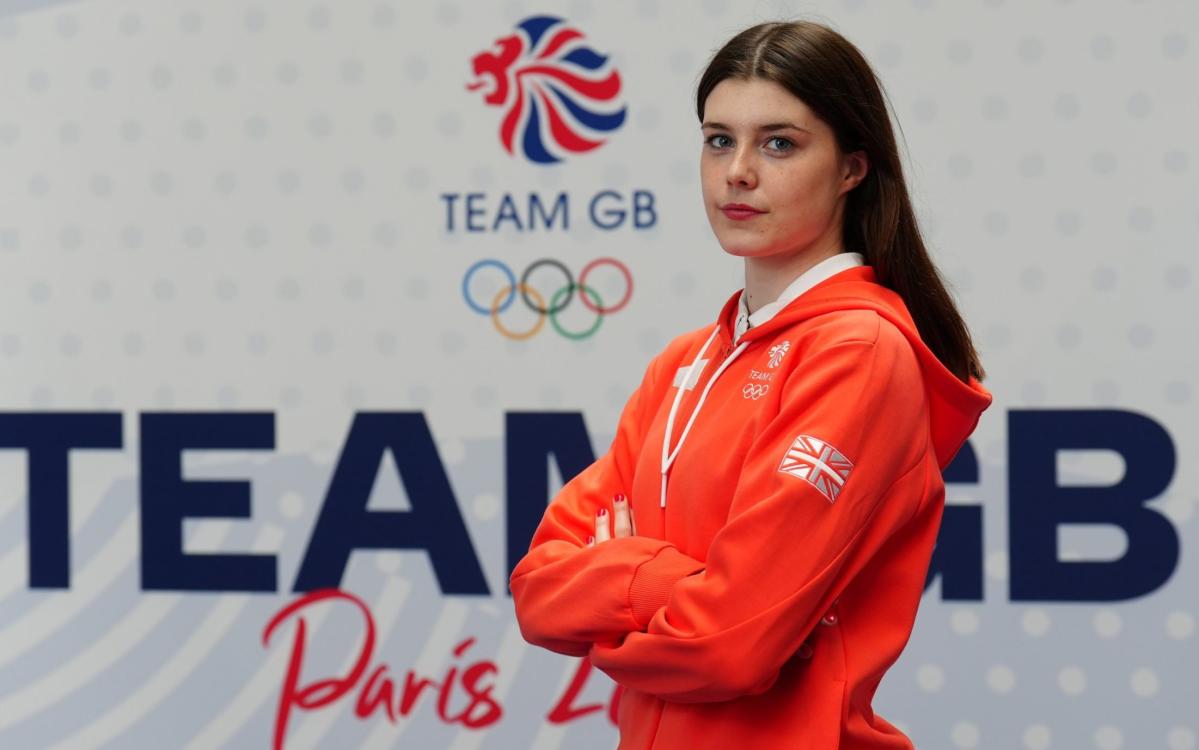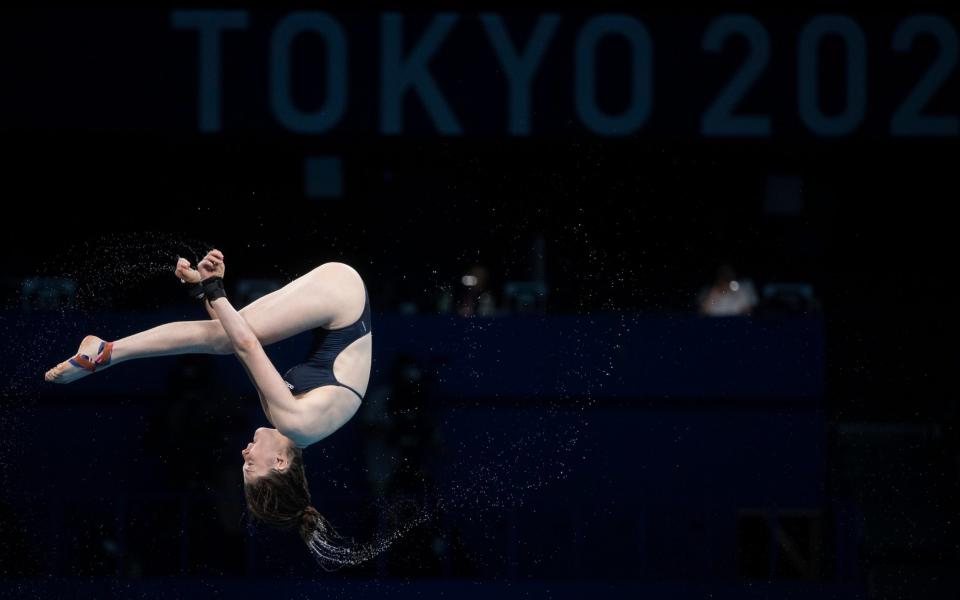Sports
Andrea Spendolini-Sirieix: I nearly quit after Tokyo – I had to rebuild my relationship with diving



Andrea Spendolini-Sirieix is owed an enjoyable Olympics given she almost gave diving up after her debilitating first Games experience.
At 16 she was the youngest member of the British diving team in Tokyo and reached the final of the 10m platform, finishing seventh.
On the outside everything looked rosy – here was a smiling new star emerging with a glow of ‘hello world’ confidence; inside she was a little girl lost. The mask that she wore after competition in those Covid days hid thoughts of despair.
“I was struggling a lot mentally. I just wasn’t doing well,” she says. “Going to Tokyo, I felt very alone, very isolated and I was missing my family. I had just finished my GCSEs and it was just very, very stressful. It just felt very overwhelming.
“When I was out there I was not enjoying anything – not the diving aspect and there was no socialising so it was even harder. After Tokyo, I didn’t take very much time off and so when I came back to training, I didn’t feel like I’d rested mentally from it.
“I made the decision to change coach because it was either I changed my scenery or I quit completely. I thought about quitting. I spoke so much about hating the sport. But I couldn’t get myself to actually quit. So I started to rebuild my relationship with diving.”


She leaned on the twin pillars of her new coach Alex Rochas and her Christian faith to overcome the fear that was making her daredevil occupation impossible. The demons retreated. Three years down the road, she is in a much healthier place.
“Tokyo feels like so long ago. I was looking at photos the other day and I was thinking to myself, ‘I’ve changed so much’. I could see the change in my face and I could see the change in how I present myself,” she says.
“The smile – before I would see it as a way to make people not worry, whereas now I actually mean the smile that I have.”
As an individual bronze medallist at the World Aquatics Championship in Doha in February, and a gold medallist in the team event, she delivered on the promise of making the podium in Paris where she won bronze in the synchronised 10m platform alongside diving partner Lois Toulson. On Tuesday afternoon she competes in the final of the individual 10m platform. Her eve-of-dive Bible study will form part of the antidote to the pressure from expectation.


“Mentally I’ve changed a lot because I have a focus that’s something other than needing to prove myself to people,” she says.
“I feel like sometimes as athletes our identity depends on whether our competition has been good whereas for me my identity in Christ is so total and so set in stone that it doesn’t matter how my competition goes. Whatever happens, happens. I just give it to God.
“It would mean a lot to win an Olympic medal, of course, but it wouldn’t change who I am. It wouldn’t change what my core beliefs are.”
What an Olympic medal might do is finally change the ‘daughter of’ tag that follows her around. Her French father Fred Sirieix, the TV personality, is part of the BBC team covering the Olympics, but she has moved on from irritation at being cast as a celebrity add-on. She is just happy he and her Italian mum Alex will be there after the loneliness of Tokyo.


“The most exciting thing is that my family is coming to watch,” she says. “My dad actually jumped off a 10m board once. He jumped, he didn’t dive. I told him: ‘Please, no diving. You’re going to hurt yourself.’ He did a dive off a lower board and after seeing that thank God he didn’t dive off 10. The diving genes started with me.”
A swimmer and gymnast who was picked up as an eight-year-old by Crystal Palace Diving Club, she carved out her own path but maybe she has inherited some of her dad’s showtime eclat.
“I feel like diving is a performance. We’ve got judges, we’ve got an audience. I see it as a performing art and I kind of like that. My parents call me a showgirl,” she says. “I really like people watching. I want to give everyone a good time. I want to make it exciting for them. So I would see it as a performance.”
‘I’m not built for the mundane life’
She never made it onto the actual stage at the Harris Academy School in Bermondsey. “I didn’t have time, I was diving. I was on the world stage!”
Since leaving after her A-levels, she has been a full-time athlete for a year in the build-up to the Games to give herself the best chance of delivering on her rich potential. That will change after Paris as she has decided to go to university to study journalism.
She will continue to dive but part-time. It is a big world out there and whatever these Games bring she wants to experience it.
“I don’t want to limit myself. I can’t just be an athlete. I’ve done it for one year and I’m already itching to do something else. I’m not built for the mundane life,” she says.
A version of this article was first published in July






